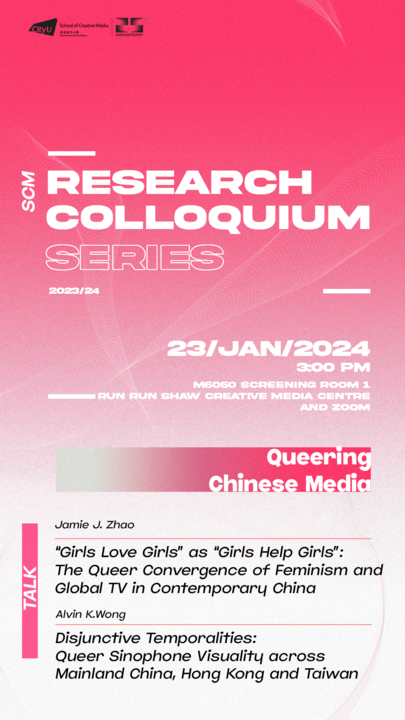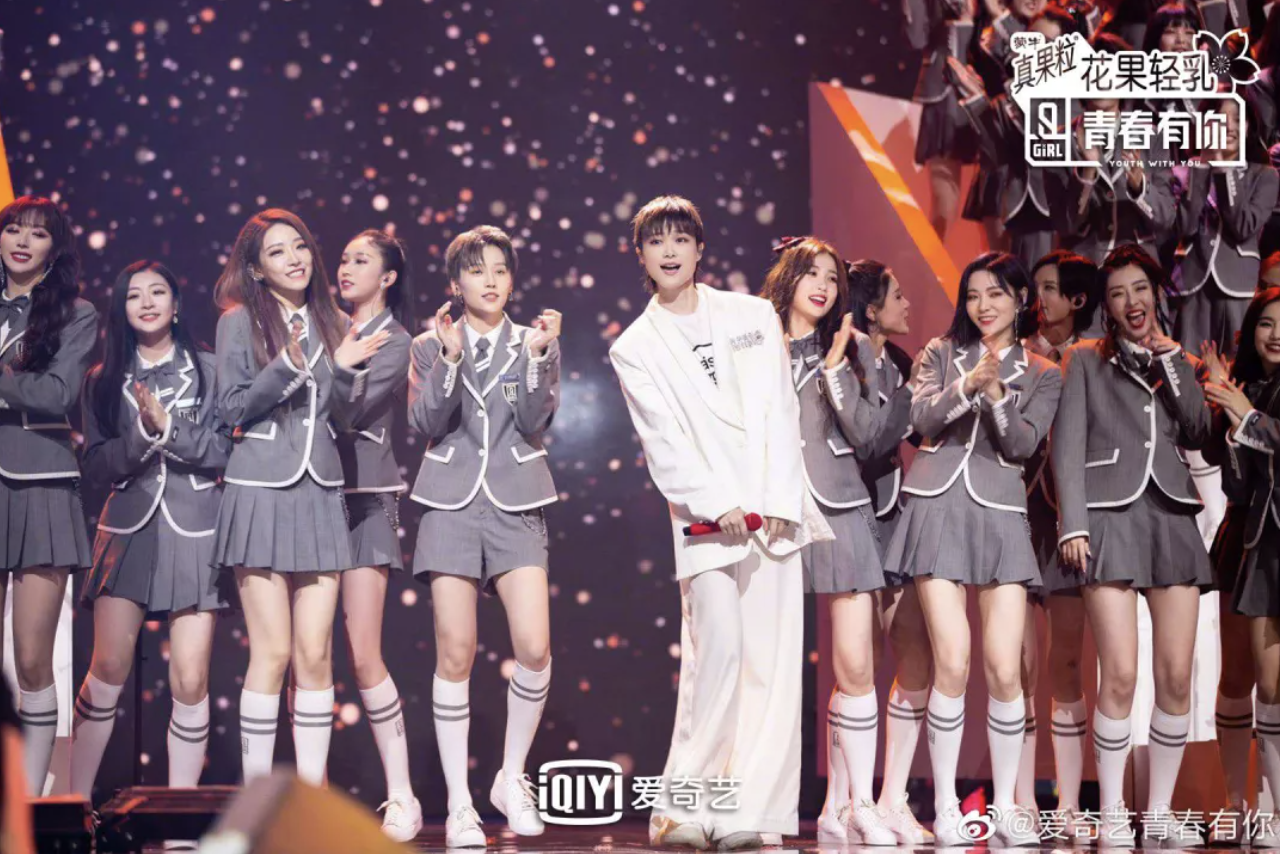4th SCM Research Colloquium 2023/24
Seminar
23 Jan 2024
3:00 p.m – 5:00 p.m
M6050 Screening Room 1, Level 6, Run Run Shaw Creative Media Centre
Free Admission.
|

|
If you can’t join the colloquium in person, you are welcomed to join the colloquium via Zoom.
https://cityu.zoom.us/j/97257475325
Meeting ID: 972 5747 5325
Passcode: 603435
The SCM Research Colloquium takes place approximately once a month for graduate students, faculty and professionals from creative media and other related disciplines to present their recent research topic/project. The colloquium offers a great opportunity for ideas exchange and intellectual conversations about one’s work. Each session will feature two speakers, a graduate student/guest speaker and a faculty member.
Each presentation is about 30 minutes, followed by 15 minutes open discussion. Seminar introduction and Q&A will be hosted by Prof. Richard Allen and/or Prof. PerMagnus Lindborg. No registration is needed and light refreshments are provided.
Seminar 4
23 January 2024, 3:00 p.m – 5:00 p.m
Queering Chinese Media
Jamie J. Zhao: “Girls Love Girls” as “Girls Help Girls”: The Queer Convergence of Feminism and Global TV in Contemporary China
Following the rise and fall of danmei-related TV in early 2020s—one of the most internationally influential Chinese TV genres in the 2010s that features male effeminacy and homosociality, a sustained popularity and a growing diversity of queer women’s images on today’s Chinese TV have been witnessed. How do we understand this sharp, if not ironic, contrast? This research asks why and how nonnormative representations of female gender and sexuality on Chinese TV keep flourishing in the 2020s by looking at several sensational Chinese women-centered reality TV competitions produced in 2020 and 2021. Most of the programs are adapted from global TV formats and synthesize transnational televisual elements, idol cultures and gendered aesthetics. I expound the ways in which images of queer women on Chinese TV are fashioned by the intersected discourses on China’s televisual-cultural globalizations and digitisation, the party-state’s manipulations and regulations of feminism, androgyny and homoeroticism, and the entertainment industry’s capitalization of queer women’s stardom and fandom. My analysis reveals that the emergence, survival and endurance of queer women on Chinese TV has coincided with China’s appropriations of global TV formats, twenty-first-century inter-Asian idol cultures and feminist thoughts. I thus capture a multilevel, ambivalent queer convergence that transforms these televisual stages into queer-charging venues through which nonnormative imaginaries of womanhood have actively incorporated local situations and transcultural televisual, gender and sexual knowledge to bypass, compromise with—and even partly connive with—the government’s ideological and moral controls.

Links: https://cityu-hk.academia.edu/JamieJZHAO
Alvin K. Wong: "Disjunctive Temporalities: Queer Sinophone Visuality across Mainland China, Hong Kong, and Taiwan"
As queer Chinese and Sinophone media studies scholars, how do we analyze this gap between the queer temporality depicted in boys’ love (BL) cultural productions vs. the actual geopolitics of gender and sexuality in the broader Sinophone world? Building on Arjun Appadurai’s theory of global disjuncture and recent works on queer media in Asia, I theorize the transregional popularity of BL visuality across the Sinophone public spheres through the concept of “disjunctive temporalities.” While The Untamed (2019) in the PRC captures a form of “unhistorical queerness” whose queer appeal precisely lies in its portrayals of bromance and queer desire in a non-historical world of jianghu (rivers and lakes of the heroic world), recent queer drama and films in postcolonial Hong Kong are by contrast more concerned with social issues such as aging, HIV prevention, and familial conflicts. The HIV-related online film For Love, We Can (dir. Chi-Lung Lam, 2014) and the recent hit TV drama Ossan’s Love (ViuTV, HK, 2021) thus visualize queer Hong Kong through what I coin “queer presentism.” Finally, the legalization of gay marriage in Taiwan in 2019 has significantly impacted the queer imaginary of BL in films and media. In lighthearted films and TV dramas such as Formula 17 (2004) and Because of You (LINE TV, TW, 2020), a world in which gay men no longer need to come out and can simply be as ordinary as any others in Taiwan is highlighted. Therefore, a certain “postliberal temporality” emerges in post-2019 Taiwan. By delineating the three modalities of “unhistorical queerness” in Mainland period dramas, “queer presentism” in postcolonial Hong Kong, and “postliberal temporality” in contemporary Taiwan, this talk captures the overall disjunctive temporalities across queer Sinophone visuality and mediascapes.
